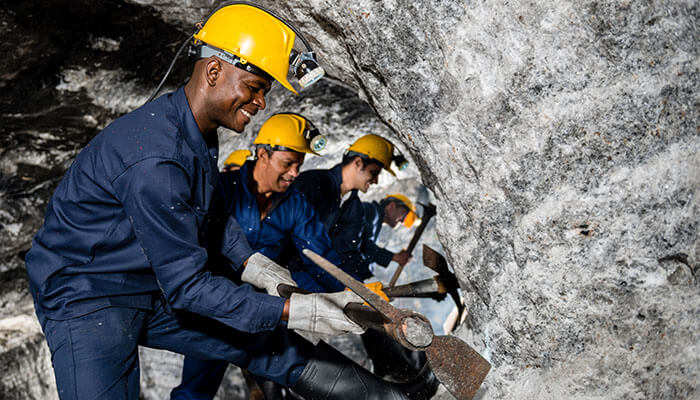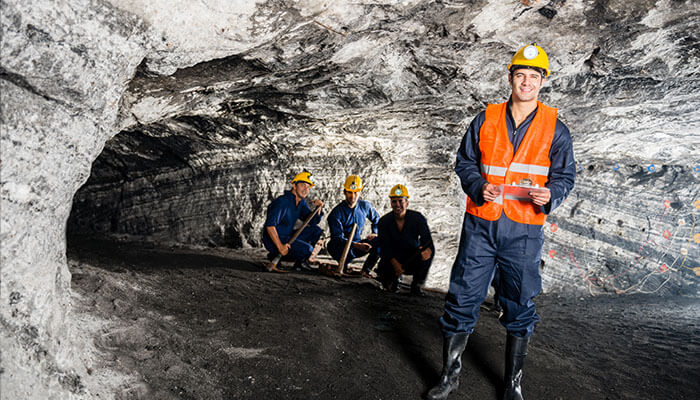As the world of cryptocurrency mining continues to expand, new mining methods are emerging that offer greater flexibility, reduced upfront costs, and potentially higher profit margins. One such method is hosted mining, which has gained popularity in recent years as an alternative to self-hosted mining. Hosted mining involves renting mining hardware from a third-party service provider and using its resources to mine cryptocurrencies. In this blog post, we will explore the benefits and drawbacks of hosted mining for small-scale miners, and why it is crucial for crypto enthusiasts to consider these factors before choosing it as an option. So, let’s dive deeper into the world of hosted mining and find out whether it is the right choice for you.
Benefits of hosted mining for small-scale miners
As a crypto investing expert, I can confidently say that hosted mining offers several benefits for small-scale miners.
1. Firstly, hosted mining eliminates the need for purchasing and maintaining expensive mining hardware, which can be a significant upfront cost for small-scale miners. By renting hardware from a third-party service provider, miners can save on capital expenditures and focus on mining activities.
2. Additionally, hosted mining service providers handle hardware maintenance, repair, and software updates, freeing up small-scale miners from technical maintenance tasks. This means that miners can devote more time and resources to mining activities, which can ultimately result in higher profits.
3. Furthermore, hosted mining allows small-scale miners to mine different cryptocurrencies without having to switch mining hardware or software, providing increased flexibility.
4. Finally, hosted mining services can offer economies of scale, which can increase profitability for small-scale miners. Overall, hosted mining provides an attractive option for small-scale miners looking to enter the cryptocurrency mining market with reduced costs and increased profitability.
Drawbacks of hosted mining for small-scale miners
When considering hosted mining as an option, it is essential to understand its drawbacks as well. Firstly, hosted mining service providers own and control the mining hardware, leaving small-scale miners with limited control over the equipment they use. This means that miners have to rely on the provider’s choices for hardware, which may not always be the most efficient or profitable option.
Another significant drawback of hosted mining is the dependence on service providers. Small-scale miners have to rely on service providers for hardware maintenance, uptime, and security. Any issues that arise with the hardware or service can result in downtime, which can lead to loss of income.
Possible hidden costs are another drawback of hosted mining. Service providers may charge additional fees such as electricity and maintenance costs, which can eat into small-scale miners‘ profits. It is crucial to research and understand all costs associated with hosted mining before choosing it as an option.
Lastly, the unregulated nature of the cryptocurrency mining industry can leave small-scale miners vulnerable to fraudulent hosted mining service providers. It is essential to thoroughly research and vet service providers before entrusting them with hardware and resources.
In conclusion, hosted mining has its drawbacks that small-scale miners should consider before choosing it as an option. These include limited control over mining hardware, dependence on service providers, possible hidden costs, and the potential for fraudulent service providers. It is crucial to weigh the benefits and drawbacks of hosted mining carefully to make an informed decision that best suits your mining goals and resources.
Conclusion
In summary, hosted mining offers several benefits for small-scale miners, such as reduced upfront costs, less maintenance and technical knowledge required, increased flexibility, and potentially higher profit margins. However, it also comes with drawbacks such as limited control over mining hardware, dependence on service providers, possible hidden costs, and the potential for fraudulent service providers.
Therefore, small-scale miners should carefully consider their options and conduct thorough research before choosing hosted mining as an option. It is crucial to weigh the benefits and drawbacks of hosted mining to make an informed decision that best suits their mining goals and resources.
Overall, hosted mining can be a viable option for small-scale miners who lack the resources to purchase and maintain expensive mining hardware. Still, it is essential to understand the risks and benefits of the service fully. With careful consideration and research, small-scale miners can make an informed decision that suits their mining goals and resources.



